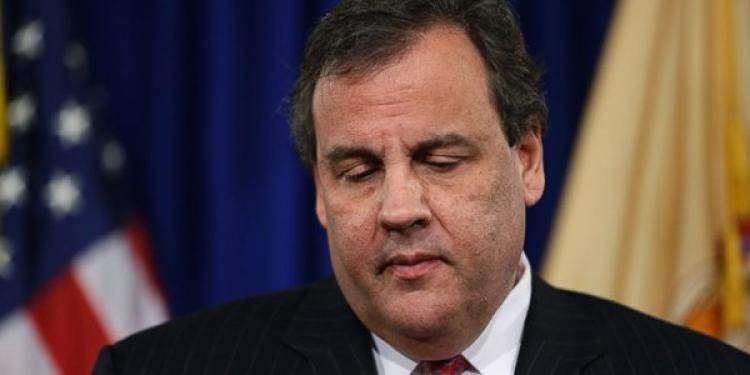New Jersey Shows that with Sportsbetting in America, Sometimes Unregulated Means Legal
Posted: October 7, 2014
Updated: June 4, 2017

Governor Chris Christie is hanging his hat on the claim that New Jersey can legally host betting as long as it doesn’t tax or regulate it.
Americans love a good underdog story. As much as the country is about admiring ambition and rewarding success, people like to see David slay Goliath once in a while. Politics in America has a lot to do with the struggle for power between Washington and the individual states, and in many cases Washington is cast in the role of Goliath while the state, whether it be Missouri or Massachusetts, is cast as David.
The latest such story involves New Jersey’s quest to defy American gambling laws and legalize sportsbetting in the state for the first time. Who is Goliath? The Professional and Amateur Sports Protection Act (PASPA), a 1992 federal bill which prohibits all states except for Nevada, Delaware, Oregon, and Montana from operating legal, regulated sportsbetting markets.
New Jersey state lawmakers have always resented getting left out in the cold and have mounted several legal challenges over the years, but to date no wagers have been placed in the state. This time the state government is playing a new card in pushing the federal government to allow casinos and racetracks located there to host sportsbooks.
Chris Christie is arguing that deregulating is a backdoor to legalization
• Currently only Nevada, Delaware, Oregon and Montana have legal wagering on sports
• New Jersey is attempting to legalize sportsbetting in the state
• The NFL and NBA are vocal opponents of betting
On behalf of the State of New Jersey, Governor Chris Christie has requested that the Supreme Court review the PASPA and allow his state to legalize sportsbetting. His argument? PASPA prohibits states from profiting from betting on sports, not from allowing it to occur in their jurisdiction. This wouldn’t be legalization, but rather decriminalization.
So, the argument goes, New Jersey casinos and racetracks can accept wagers on NFL games, golf tournaments or whatever else they see fit as long as the state doesn’t collect tax revenue from it. Why would the state want to allow an activity which it doesn’t collect tax revenue from? The simple answer is that it doesn’t cost anything and would amount to a financial lifeline for Atlantic City casinos suffering from plummeting revenues.
The more complicated answer is that Christie, State Senator Ray Lesniak and a host of other voices are determined to punch a hole in what they see as excessive federal regulation of gambling, including online casinos in America as well as sportsbetting. Danny Cevallos of CNN offered up a good critique of American gambling restrictions:
Ultimately, don’t think for a second that the leagues, the states or the federal government care about the morality of our gambling addictions. They care about money. When gambling is profitable to these entities and interest groups, it’s legal. When someone else is making the profits, it’s magically illegal.
Christie’s bid for legalization involves a very creative interpretation of PASPA, and one that has never been tried before. But it just might work. America is an ultra-legal country, and the letter of the law tends to trump the spirit.
What is New Jersey up against?
Aside from the Department of Justice, which has decided that it doesn’t want any revisions to current enforcement of PASPA, what is blocking the state’s bid? The biggest sports leagues in the country: billion-dollar industries which have committed themselves to resisting the legalization of sportsbetting in America as well as its expansion in Canada. Almost as soon as Christie made his request this group filed a motion in opposition to it.
The list of leagues includes the NHL (the most profitable sports league in North America), NBA, MLB, NHL, and NCAA. The NFL and NBA have long led the charge against betting, due to their immense influence as well as their opposition to the activity.
NFL Commissioner Roger Goodell is currently the biggest obstacle standing in New Jersey’s way. Following the Super Bowl last January he made the league’s position clear: “As you know, we fought legalized gambling, sports gambling, for a long time, most recently here in New Jersey, and I would see our position in the same vein going forward.”
On the other side of the aisle, the NBA joined in the motion against New Jersey’s request for legalization, but under the leadership of new Commissioner Adam Silver there are indications that the league is ready to soften its stance, and see betting as a way to increase interest in the sport.
In September Silver surprised us all when he told reporters that “sportsbetting is inevitable… if people are watching a game and clicking to bet on their smartphones, which is what people are doing in the UK right now, then it’s much more likely you’re going to stay tuned for a long time.”
Should we bet on money on Chris Christie and the State of New Jersey?
Millions of Americans would like to see David take down Goliath and allow betting on sports in its casinos and racetracks, but federal law is stubbornly resistant to change. The Department of Justice and each of the major sports leagues are going to put a lot of weight into squashing New Jersey’s efforts.
We will just have to wait and see what the Supreme Court decides, but it will be major gambling news if New Jersey is awarded an exemption to PASPA. We wouldn’t advise you to bet your money on it.












